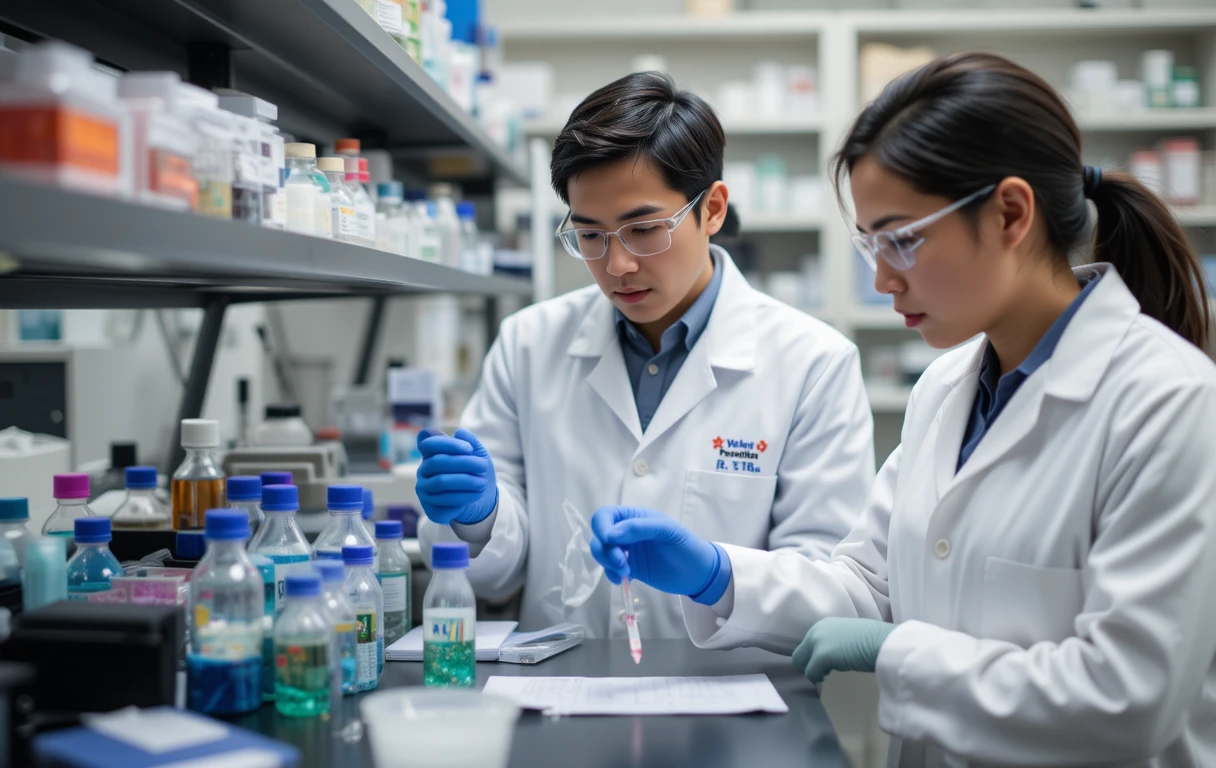Biotechnology is transforming the landscape of healthcare as we know it. With groundbreaking advancements in genetics, diagnostics, and treatment modalities, biotech innovations are tackling some of the world’s most pressing health issues. From combating antibiotic resistance to enabling early detection of life-threatening diseases, the possibilities seem limitless. This article delves into the top 7 biotech innovations that are actively changing lives and reshaping global health right now.
Biotech Innovations: A Ray of Hope in Global Healthcare
Biotechnology isn’t just a field of science—it’s a lifeline. As diseases evolve, so do the tools to fight them. Today, biotech innovations are addressing everything from rare genetic disorders to worldwide pandemics. Below, we explore seven extraordinary breakthroughs that are helping humanity fight back.
Gene Editing with CRISPR: Redefining Medical Precision
CRISPR (Clustered Regularly Interspaced Short Palindromic Repeats) is a gene-editing technology that has unlocked unprecedented possibilities in healthcare. By allowing scientists to edit DNA with precision, CRISPR is being used to correct genetic disorders like sickle cell anemia and cystic fibrosis.
This innovation has the potential to eradicate hereditary diseases entirely while also enabling research into conditions like cancer. With ongoing clinical trials, CRISPR is bridging the gap between science fiction and reality.
mRNA Vaccine Technology: A Revolution in Immunization
The rapid development of mRNA vaccines during the COVID-19 pandemic showcased biotech’s ability to respond to global health emergencies. Unlike traditional vaccines, mRNA vaccines use genetic instructions to train the immune system.
This technology is now being applied to other infectious diseases, such as influenza and HIV, and even cancers. Its adaptability, speed, and efficiency have redefined how vaccines are developed and deployed, saving millions of lives.
Personalized Medicine: Treatments Tailored to You
One-size-fits-all approaches in medicine are becoming obsolete. Personalized medicine uses genetic information to create individualized treatment plans. This biotech innovation ensures higher efficacy and fewer side effects, particularly in areas like oncology and cardiology.
Pharmacogenomics, the study of how genes affect drug responses, is playing a crucial role in this shift. Personalized medicine gives patients treatments designed specifically for their genetic makeup, providing hope for better outcomes.
Wearable Health Tech: Real-Time Monitoring with Biotech
Wearable biotech devices like glucose monitors, heart rate trackers, and even AI-powered patches are revolutionizing patient care. These gadgets provide real-time health data, empowering individuals to monitor chronic conditions like diabetes and heart disease.
The integration of biotech into wearables is not just about convenience—it’s about saving lives. By detecting irregularities early, wearable tech ensures timely interventions and improved health outcomes.
Artificial Intelligence in Drug Discovery
The process of drug discovery has historically been time-consuming and expensive, often taking years to bring a single drug to market. Enter artificial intelligence (AI). Biotech companies are now leveraging AI to identify potential drug candidates, simulate their effects, and accelerate testing.
This innovation is especially critical in addressing global health challenges like antibiotic resistance and rare diseases, where time is of the essence. AI in biotech is turning once-impossible treatments into a reality.
Regenerative Medicine: Growing Hope with Stem Cells
Regenerative medicine is using stem cells to repair or replace damaged tissues and organs. From spinal cord injuries to degenerative diseases like Parkinson’s, this biotech breakthrough offers a second chance at life.
Scientists are even developing bioengineered tissues and organs, eliminating the need for transplants. As research progresses, regenerative medicine promises to revolutionize how we approach organ failure and chronic conditions.
Biomanufacturing: Sustainable Solutions for a Healthier Planet
Biomanufacturing combines biotech with sustainability, creating materials and medicines in environmentally friendly ways. From lab-grown meat to bio-based plastics, this innovation addresses both health and environmental challenges.
In healthcare, biomanufacturing is being used to produce complex biologics like insulin and monoclonal antibodies more efficiently. It’s an example of biotech working not just for humans but for the planet as a whole.
How These Biotech Innovations Are Changing Lives
The impact of these innovations is already being felt worldwide. Millions of patients are receiving life-saving treatments that were unthinkable a decade ago. Whether it’s CRISPR correcting genetic mutations, mRNA vaccines preventing pandemics, or regenerative medicine offering new hope, these advancements are proof that biotech is humanity’s most powerful ally in the fight against global health challenges.
Why Biotech Matters Now More Than Ever
As the global population grows and diseases become more complex, the need for innovative biotech solutions is urgent. These advancements aren’t just about curing diseases—they’re about improving the quality of life for everyone. Biotech innovations are a testament to human ingenuity and a reminder that science holds the key to a healthier, brighter future.
Conclusion
Biotech innovations are not just transforming healthcare—they’re transforming lives. From gene editing to wearable health tech, these advancements are addressing the most critical health challenges of our time. They offer hope where there was none and solutions that seemed impossible just a decade ago. With science leading the way, the future of global health looks brighter than ever.




